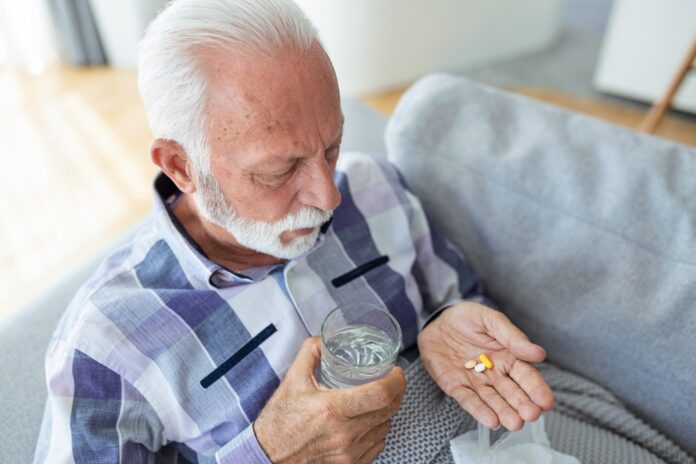Do antibiotics make you tired? You’re not alone. Many seniors struggle with this same phenomenon.
Luckily, some small lifestyle changes may make taking antibiotics easier. Keep reading to find out how to combat fatigue from antibiotics.
What Are Antibiotics?
Antibiotics are a type of medication. A doctor generally prescribes antibiotics to fight bacterial infections. As a standard practice, physicians will prescribe antibiotics before surgery to help protect the immune system from potential infections.
You’ve probably already heard of some common antibiotics, including:
- Glycopeptides (such as vancomycin)
- Penicillin
- Tetracyclines
Antibiotics work to help you heal from common ailments, such as:
- Common cold and chest cold (acute bronchitis)
- Ear and sinus (sinusitis) infections
- Flu (influenza)
- Skin infections
- Sore throat
- Urinary tract infections
It’s important to note that although the flu is listed on this list, antibiotics cannot treat viruses or viral infections. However, they are often prescribed when a virus strikes as a way to help combat certain symptoms or eradicate “bad” bacteria that might be making the situation worse.
Do Antibiotics Make You Tired?
All antibiotics come with risks and benefits. Generally, doctors prescribe antibiotics because the benefits outweigh the risks. One of the most common side effects of antibiotics is fatigue, and since prolonged fatigue can decrease quality of life, it’s an important side effect to address.
Sometimes, fatigue is a natural side effect of the illness you’re experiencing. For example, if a bacterial infection makes you vomit, your body may experience more fatigue than normal. It’s helpful to remember during situations like these that fatigue is a normal body response, and that your body may simply be working hard to rid itself of infections.
Researchers are still unsure whether fatigue can be attributed solely to the body fighting an infection, or if the fatigue can be completely attributed to antibiotic use alone. In any case, the added side effect of fatigue can be frustrating and make it difficult to go about your day.
While fatigue is considered a possible side effect for anyone taking antibiotics, seniors are considered especially susceptible. Certain antibiotics are known to make you feel more tired than others, including:
- Amoxicillin
- Azithromycin
- Ciprofloxacin
If these antibiotics look like alphabet soup to you, that’s okay! One simple way to know if your antibiotic will make you sleepy or fatigued is to ask your doctor about the side effects. You can also consult your pharmacist, who will likely ask you if you have any questions when you pick your prescription up.
How to Combat Fatigue From Antibiotics
Fortunately, fatigue isn’t just a symptom you have to suffer through! Small adjustments in your schedule can help you prevent fatigue. Supporting your body in moving through these symptoms is a key part of becoming better during an illness.
Try these three tips if you’re dealing with antibiotic-related drowsiness.
1. Take Antibiotics At Night
This tip may sound like a no-brainer, but it’s worth mentioning. Instead of making yourself feel more tired during the day, taking the antibiotic at night helps you “sleep it off” in a way. In other words, you may still feel sleepy, but the effects will be kicking in at a time you’d normally be asleep anyway.
Some people find this effect pleasing, since the drowsiness brought on by the medication actually helps them get to sleep. Of course, you’ll first want to talk to your doctor to make sure this practice is appropriate for the type of medicine you’re using.
Although it’s a relatively rare side effect, allergic reactions (i.e. rashes, hives) can occur. When taking a new type of antibiotic for the first time, it’s best to take it during the day so you can monitor for side effects that may indicate an allergic reaction. Once you’re familiar with the potential side effects it may be safe to switch the time you take your antibiotic to night time.
Again, this practice may not be appropriate for all forms of antibiotics. Some drugs need to be taken in 4-6 hour intervals or with meals. However, for other medicines, the tactic of taking antibiotics at night can help you combat fatigue.
2. Introduce a Probiotic
Since antibiotics work to eradicate bacteria, one reason for fatigue may be that antibiotics wipe out some of the “good” bacteria in the gut along with the bad. Scientists don’t entirely understand the finer details of this interaction yet, but it’s believed that antibiotics can alter the way your body digests and absorbs nutrients for some time after you take them. Even though antibiotics may improve your health during an infection, the loss of “good” bacteria may leave you vulnerable to infections like C. diff (Clostridioides difficile) down the line.
Interestingly, adding a probiotic to your routine may help fortify your gut and protect you against fatigue. Probiotics help to populate your gut with “good” bacteria, which create a favorable intestinal environment. This may help counteract some side effects of antibiotics, and is a good practice for seniors in general.
As with any supplement, you’ll want to make your doctor aware that you’re taking a probiotic with your medication. In some rare cases, probiotics may interact with your medication or make your antibiotic less effective. If this is the case, you can take a probiotic before or after the time period the antibiotic is taken.
3. Follow The Directions & Don’t Overuse
Although this tip seems like common sense, it’s worth noting. Taking antibiotics excessively is actually a worldwide problem called antibiotic resistance.
Sometimes, antibiotics are overprescribed by physicians, and the bad bacteria in the body learn to become resistant to the same medications that are meant to eradicate it. This is as scary as it sounds, since “super” strains of these bacteria can evolve that are virtually resistant to any medication used to treat it.
To make matters worse, animals raised for consumption are often given antibiotics. These antibiotics are frighteningly similar to ones given to humans, meaning you might be unknowingly consuming antibiotics along with your food. One way to lessen the likelihood of ingesting antibiotics is to seek out animal products labeled with the phrase “no antibiotics ever” or “raised without antibiotics.”
Most people can’t avoid antibiotics their entire life, meaning you typically shouldn’t refuse antibiotics if your doctor recommends it as your best course of treatment. You can, however, ask plenty of questions to make sure you’re taking enough of the antibiotic to help your body fight the infection without making your body resistant to it in the long term.
If you contract an infection that requires antibiotic use, it’s important that you take your antibiotic according to the direction (not more frequently or in excessive amounts). Clearly examine the label as the instructions often provide helpful information and may warn you about significant side effects to plan for (such as fatigue).
While you may not be able to avoid fatigue altogether, understanding important details about the antibiotic may help you adjust your schedule accordingly.
A Final Word Antibiotics and Fatigue
When your body is fighting an infection, fatigue feels like an unwelcome friend. Although a common side effect of antibiotics, fatigue isn’t inevitable and may actually be a sign that your body is working hard to get well.
Small adjustments to your medication schedule and lifestyle may make sense for you as you aim to avoid annoying symptoms like sleepiness and lethargy.
References:
Centers for Disease Control and Prevention. About Antimicrobial Resistance. Cdc.gov. Published October 2022.
Centers for Disease Control and Prevention. Treatment for Common Illnesses. Cdc.gov. Published October 2021.
Cronkleton E. Names of Common Antibiotics. Healthline.com. Published September 2021.
Harrelson L. Do Antibiotics Cause Fatigue and Lethargy? Agingcare.com. Accessed April 2023.
National Library of Medicine. Antibiotics. Medlineplus.gov. Published January 2022.
Swavely-Verenna K. Can Antibiotics Make You Tired? Griswoldhomecare.com. Published January 2022.






